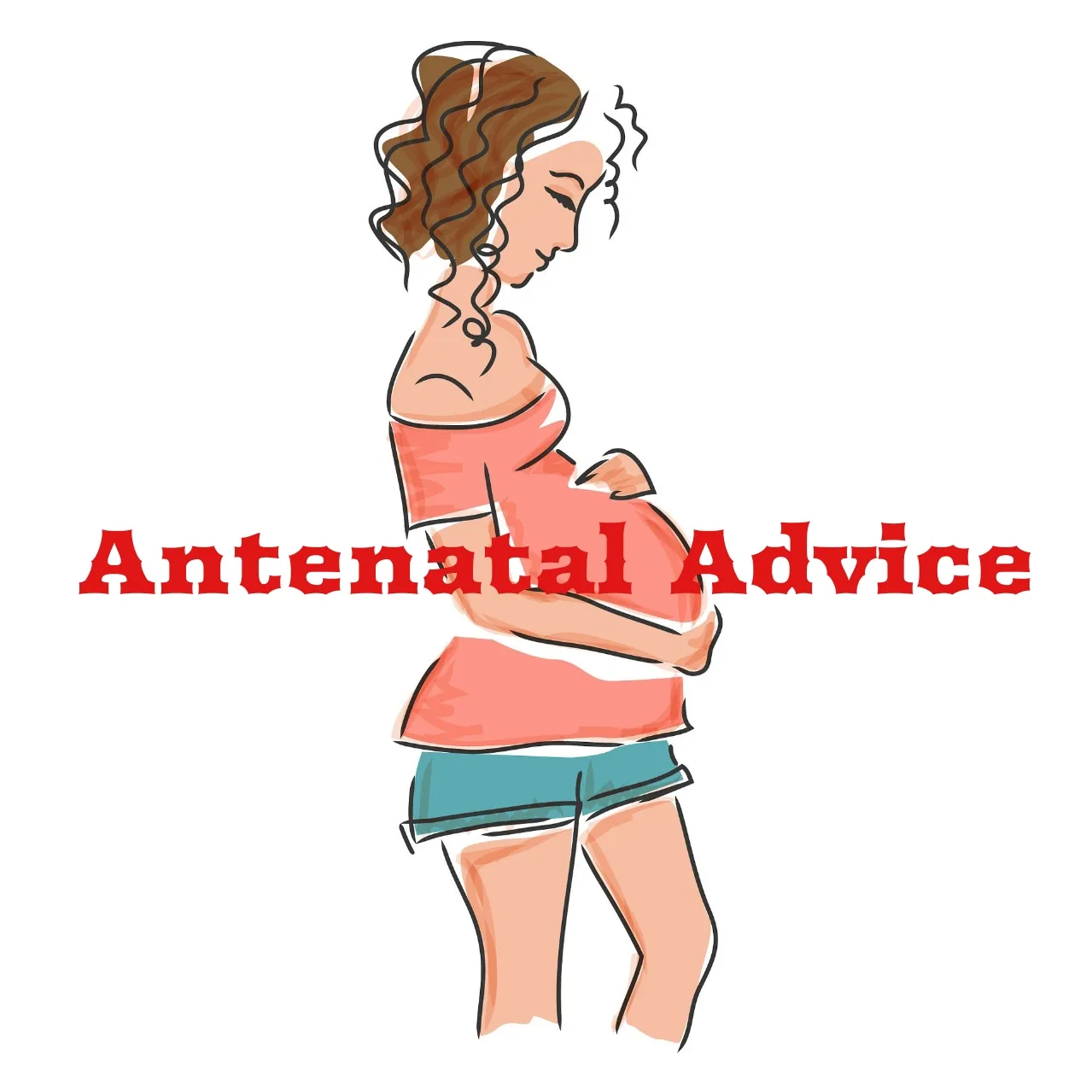Antenatal healthcare is a preventive healthcare, aimed at promoting healthy lifestyle that is beneficial for both mother and child.
Principles

source
(1)To council the women about the importance of regular check up. (2) To maintain or improve, the health status of the woman to the optimum till delivery by judicious advice regarding diet, drugs and hygiene. (3) To improve the psychology and to remove the fear of the unknown by counseling the woman.
DIET: The diet during pregnancy should be adequate to provide—(a) good maternal health (b) optimum fetal
growth (c) the strength and vitality required during labor and (d) successful lactation.
During pregnancy, there is increased calorie requirement due to increased growth of the maternal tissues, fetus, placenta and increased basal metabolic rate. The increased calorie requirement is to the extent of 300 over the nonpregnancy state during second half of pregnancy.
Generally, the diet in pregnancy should be with woman’s choice as regard the quantity and the type. Woman with normal BMI should eat adequately so as to gain the optimum weight (11 kg).
Overweight women with BMI between 26–29 should limit weight gain to 7 kg and obese women (BMI > 29) should gain less weight. Excessive weight gain increases antepartum and intrapartum complications
Dietetic advice should be given with due consideration to the socioeconomic condition, food habits and taste of the individual. Woman with normal BMI should eat as to maintain the schedule weight gain in pregnancy. The instruction about diet should be reasonable and realistic to individual women.
Supplementary nutritional therapy 
Source
There is negative iron balance during pregnancy and the dietetic iron is not enough to meet the daily requirement especially in the second half of the pregnancy. Thus, supplementary iron therapy is needed for all pregnant mothers from 16 weeks onwards. Above 10 gm% of hemoglobin, 1 tablet of ferrous sulfate (Fersolate) containing 60 mg of elemental iron is enough. The dose should be proportionately increased with lower hemoglobin level to 2–3 tablets a day. 3 tablets provide 45 mg of absorbable iron. As the essential vitamins are either lacking in the foods or are destroyed during cooking, supplementary vitamins are to be given daily from 20th week onwards
ANTENATAL HYGIENE
In otherwise uncomplicated cases, the following advices are to be given.
Rest and sleep
The patient may continue her usual activities throughout pregnancy. However, excessive and strenuous work should be avoided especially in the first trimester and the last 4 weeks
Recreational exercise (prenatal exercise class) are permitted as long as she feels comfortable. There is individual variation of the amount of sleep required. However, on an average, the patient should be
in bed for about 10 hours (8 hours at night and 2 hours at noon) especially in the last 6 weeks. In late pregnancy lateral posture is more comfortable.
Bowel
Constipation is common. It may cause backache and abdominal discomfort. Regular bowel movement may be facilitated by regulation of diet taking plenty of fluids, vegetables and milk or prescribing stool softners at bed time. There may be rectal bleeding, painful fissures or hemorrhoids due to hard stool.
Bathing
The patient should take daily bath but be careful against slipping in the bathroom due to imbalance.
Clothing, shoes and belt
The patient should wear loose but comfortable garments. High heel shoes should better be avoided in advanced pregnancy when the center of balance alters.
Constricting belt should be avoided.
Dental care
Good dental and oral hygiene should be maintained. The dentist should be consulted, if necessary. This will facilitate extraction or filling of the caries tooth, if required, comfortably in the 2nd trimester.
Care of the breasts
Breast engorgement may cause discomfort during late pregnancy. A well-fitting brassiere can give relief.
Coitus
Generally, coitus is not restricted during pregnancy. Release of prostaglandins and oxytocin with coitus may cause uterine contractions. Women with increased risk of miscarriage or preterm labor should avoid coitus if they feel such increased uterine activity.
Travel
Travel by vehicles having jerks are better to be avoided especially in first trimester and the last 6
weeks. The long journey is preferably be limited to the second trimester. Rail route is preferable to bus route. Travel in pressurized aircraft is safe up to 36 weeks.Air travel is contraindicated in cases with placenta previa, pre-eclampsia, severe anemia and sickle cell disease. Prolonged sitting in a car or aeroplane should be avoided due to the risk of venous stasis and thromboembolism. Seat belt should be under the abdomen.
Smoking and alcohol
In view of the fact that smoking is injurious to health, it is better to stop smoking not only during pregnancy but even thereafter. Heavy smokers have smaller babies and there is also more chance of abortion. Similarly, alcohol consumption is to be drastically curtailed or avoided, so as to prevent fetal maldevelopment or growth restriction
IMMUNIZATION
Fortunately, most of life-threatening epidemics are rare. In the developing countries immunization in pregnancy is a routine for tetanus; others are given when epidemic occurs or traveling to an endemic zone or for traveling overseas.
Live virus vaccines (rubella, measles, mumps, yellow fever) are contraindicated.
Rabies, Hepatitis A and B vaccines, toxoids can be given as in nonpregnant state.
Tetanus
Immunization against tetanus not only protects the mother but also the neonates. In unprotected women, 0.5 mL tetanus toxoid is given intramuscularly at 6 weeks interval for 2 such, the first one to be given between 16–24 weeks. Women who are immunized in the past, a booster dose of 0.5 mL IM is given in the last trimester.
Drugs: Almost all the drugs given to mother will cross the placenta to reach the fetus. Possibility of pregnancy should be kept in mind while prescribing drugs to any woman of reproductive age.
GENERAL ADVICE
The patient should be persuaded to attend for antenatal check up positively on the schedule date of visit.
She is instructed to report to the physician even at an early date if some untoward symptoms arise such as intense headache, disturbed sleep with restlessness, urinary troubles, epigastric pain, vomiting and scanty urination.
She is advised to come to hospital for consideration of admission in the following circumstances:
• Painful uterine contractions at interval of about 10 minutes or earlier and continued for at least an hour—suggestive of onset of labor.
• Sudden gush of watery fluid per vaginam—suggestive of premature rupture of the membranes.
• Active vaginal bleeding, however slight it may be.
[Text source]Dc Dutta textbook of obstetrics) (Shaw's textbook of obstetrics)

